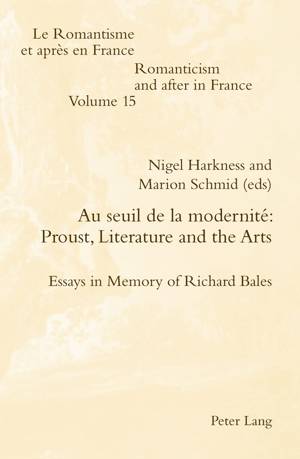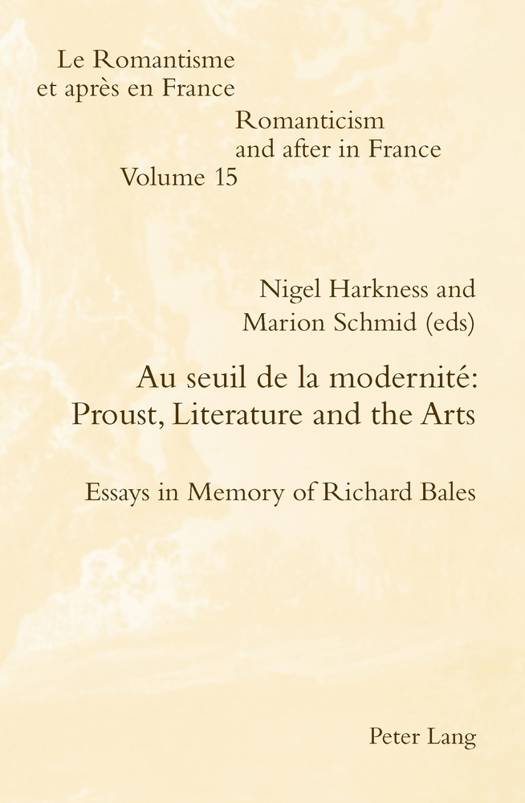
- Afhalen na 1 uur in een winkel met voorraad
- Gratis thuislevering in België vanaf € 30
- Ruim aanbod met 7 miljoen producten
- Afhalen na 1 uur in een winkel met voorraad
- Gratis thuislevering in België vanaf € 30
- Ruim aanbod met 7 miljoen producten
Zoeken
Au Seuil de la Modernité Proust, Literature and the Arts
Essays in Memory of Richard Bales
€ 77,45
+ 154 punten
Omschrijving
This volume of essays, which is dedicated to the late Richard Bales, one of the doyens of Proust studies, considers Proust's pivotal role at the threshold of modernity, between nineteenth- and twentieth-century forms of writing and thinking, between the Belle Epoque and the First World War, between tradition and innovation. More than just a temporal concept, this threshold is theorized in the volume as a liminal space where borders (geographical, artistic, personal) dissolve, where greater possibilities for artistic dialogue emerge, and where unexpected encounters (between artists, genres and disciplines) take place.
Working both backwards and forwards from the publication dates of A la recherche du temps perdu (1913-27), the seventeen essays written specially for this volume take as their focus Proust's manifold engagements with the world of modernity, as well as intermedial relations among the generations of artists before and immediately after him. Looking back to the nineteenth century, the undisputed starting point for nascent forms of modernity in Western art and literature, and a period that was uniquely formative for the young Proust, they also offer insights into inter-artistic dialogue in Surrealist and post-Surrealist painting and poetry.
Working both backwards and forwards from the publication dates of A la recherche du temps perdu (1913-27), the seventeen essays written specially for this volume take as their focus Proust's manifold engagements with the world of modernity, as well as intermedial relations among the generations of artists before and immediately after him. Looking back to the nineteenth century, the undisputed starting point for nascent forms of modernity in Western art and literature, and a period that was uniquely formative for the young Proust, they also offer insights into inter-artistic dialogue in Surrealist and post-Surrealist painting and poetry.
Specificaties
Betrokkenen
- Uitgeverij:
Inhoud
- Aantal bladzijden:
- 324
- Taal:
- Engels
- Reeks:
- Reeksnummer:
- nr. 15
Eigenschappen
- Productcode (EAN):
- 9783039118915
- Verschijningsdatum:
- 25/02/2011
- Uitvoering:
- Paperback
- Formaat:
- Trade paperback (VS)
- Afmetingen:
- 145 mm x 18 mm
- Gewicht:
- 449 g

Alleen bij Standaard Boekhandel
+ 154 punten op je klantenkaart van Standaard Boekhandel
Beoordelingen
We publiceren alleen reviews die voldoen aan de voorwaarden voor reviews. Bekijk onze voorwaarden voor reviews.










